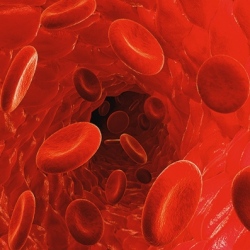
Scientists have announced a significant discovery in their study of stem cells in the human blood system. A protein that can control and regenerate rare and life-saving blood stem cells, called Musashi-2, could prove to be useful for those with blood-based disorders; aplastic anemia, sickle cell disease, leukemia, and lymphoma.
“We’ve really shone a light on the way these stem cells work. We now understand how they operate at a completely new level, and that provides us with a serious advantage in determining how to maximize these stem cells in therapeutics. With this newfound ability to control over the regeneration of these cells, more people will be able to get the treatment they need,” says senior author of the study, Kristin Hope.
For the study, researchers looked into stem cells from umbilical cord blood, a proven source of stem cells, which has largely been under-utilized, especially for the treatment of adult blood cancers.
Cord blood cells contain properties such as accessibility and adaptability that make them easier for transplantation, ultimately making the process safer and more effective. Unfortunately, these cord blood cells are in short supply. Only five percent of samples will contain enough cells that can be used for transplantation.
The team’s research revealed that the protein is capable of expanding the number of stem cells contained in individual samples, thus significantly lowering the stem cell shortage, which would ultimately translate to lower healthcare costs and speed up treatment.
